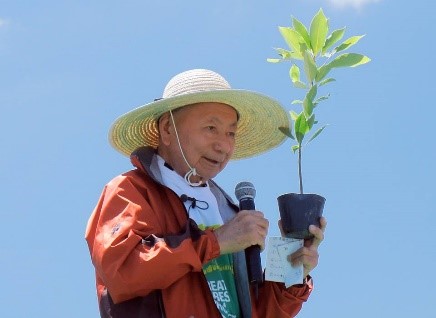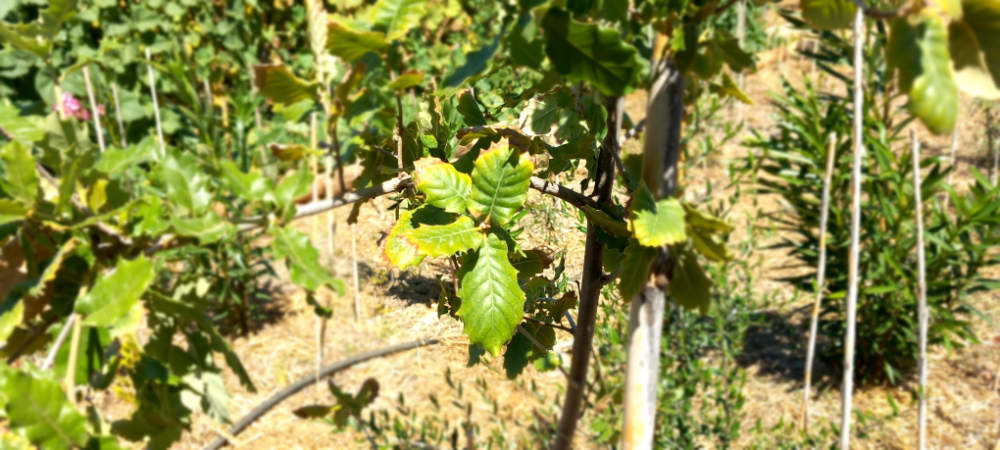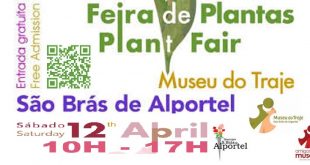Saturday the 5th of August 2023.
And now for something completely different. Last March, biologist Sónia Soares fulfilled a long-held dream in her own garden. Taking a plot of 100 m² (5 x 20m) she planted a new young diverse forest consisting of 19 different species of trees and plants. How did she go about it, why did she do it, and what kind of methods did she employ, and not least what did this all cost, were questions ECO123 asked her during a visit to Algoz.
 Planting small forests the size of a tennis court in cities and towns could be the future of the forest in urban spaces. This is what Japanese botanist Professor Akira Miyawaki (1928-2021) once told his students at the Institute for Environmental Sciences and Environmental Technology at Yokohama State University. Planning well and preparing the soil with compost and terra preta (black soil), choosing native trees and planting them very densely, make for the emergence, within only a few years, of small biotopes in urban spaces with a high level of biodiversity. Students, as well as the available literature on Miyawaki botanic philosophy spread this idea far and wide. As did the Blue Planet Prize, an award worth 320,000 euros which in 2006 went to Akira Miyawaki. This prize is awarded to botanists who have developed significant approaches towards solving global environmental problems and is held to be the most important international distinction given to pioneers of sustainability research.
Planting small forests the size of a tennis court in cities and towns could be the future of the forest in urban spaces. This is what Japanese botanist Professor Akira Miyawaki (1928-2021) once told his students at the Institute for Environmental Sciences and Environmental Technology at Yokohama State University. Planning well and preparing the soil with compost and terra preta (black soil), choosing native trees and planting them very densely, make for the emergence, within only a few years, of small biotopes in urban spaces with a high level of biodiversity. Students, as well as the available literature on Miyawaki botanic philosophy spread this idea far and wide. As did the Blue Planet Prize, an award worth 320,000 euros which in 2006 went to Akira Miyawaki. This prize is awarded to botanists who have developed significant approaches towards solving global environmental problems and is held to be the most important international distinction given to pioneers of sustainability research.
In the Netherlands over 100 Miyawaki groves have been created since 2015. In London too, Chelsea saw the plantation of a Miyawaki forest. In Germany, the first of its kind was created in 2020, near Frankfurt a.M. As well as in New Delhi, in Paris and… And as for the Algarve, now after Monchique, we also have one in Algoz (Silves).
After studying in Évora and Lisbon, Sónia Soares took her Masters degree in Environmental Management and Ecology at FCUL. „I planted the forest for my two young children,“ she told ECO123 when we visited. Cork oaks, carob trees, pine trees and countless other species, including the medronheiro strawberry tree – all of them native tree and plant species. Each square metre is occupied by three saplings. Three saplings? At a later stage, once they have acclimatised, the roots will root for each other as it were, supporting each other. It will become a very dense forest, humid, and also, because of its diversity, difficult to ignite.
A Miyawaki grove planted in 2004 in Caldas de Monchique survived the 2018 forest fire undamaged. Should we take the hint maybe? According to the calculations of the biologist, the cost of creating a 100m2 forest (including everything) runs to around 3,200 euros. She is also only too happy to advise on how to go about it. Now would that not make a lovely birthday nature-learning present for the kids, or a good investment for the grandchildren…
+ info: www.florestanativa.pt
 Eco123 Revista da Economia e Ecologia
Eco123 Revista da Economia e Ecologia



